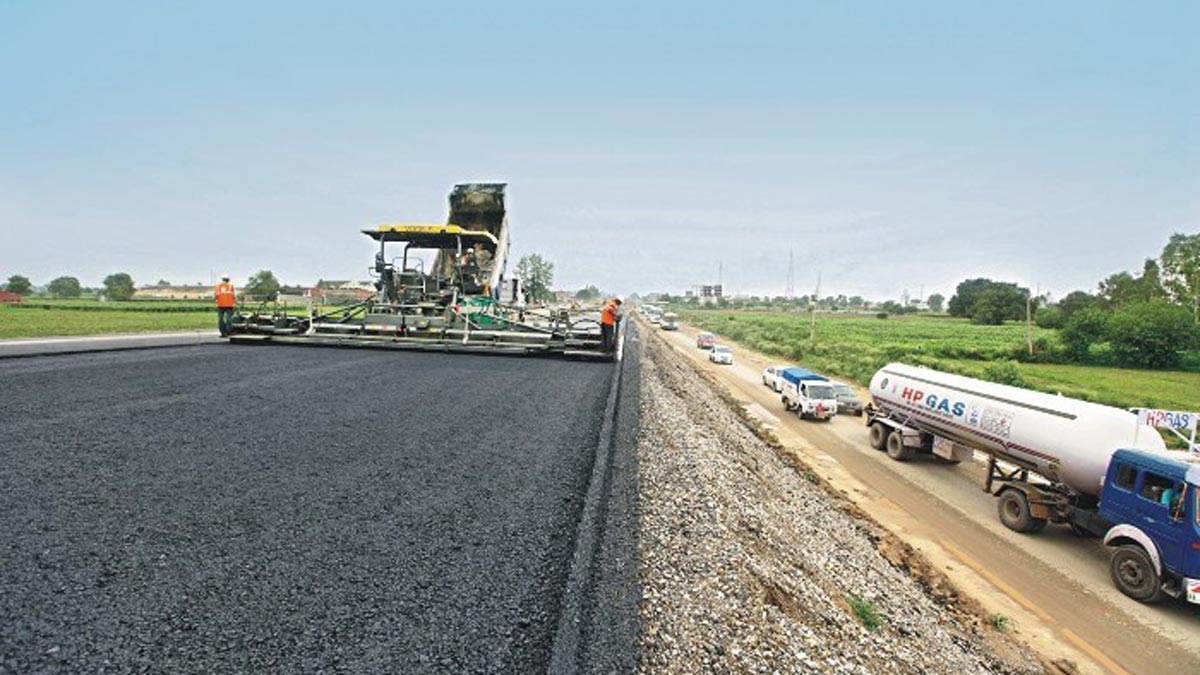- FG May Stepdown N120bn Bodo-Bonny Road Project Over Compensation Troubles
The federal government thursday said it might be forced to step down the 34-kilometre long Bodo-Bonny road project over lack of cooperation from its communities in the Niger Delta.
Speaking at a meeting with prominent traditional rulers of the region, Julius Berger, Nigeria Liquefied Natural Gas (NLNG), as well as the Council of Elders from Ataba, and Gokana, among others, at the ministry, the Minister of Power, Works and Housing, Mr. Babatunde Fashola, issued such warning to the communities and asked them to get their houses in order within a week or risk having the project suspended.
The road project which has been hampered from going on for a long time on account of funding constraints, is expected to help address the twin challenges of poverty and unemployment, as well as improve the lives of people of the region, especially those from Bonny, Ogoni, Okrika, Eleme, Andoni, and other communities in the Niger Delta when completed.
The NLNG opted to fund its construction by picking up about 50 per cent of its construction cost. However, compensation rows have reportedly cropped up to stop it from going ahead as planned.
But Fashola, stated in the meeting which had leaders of the communities such as HRM Festus Bagia who was represented by the Chairman of Gokana Council of Chief, Mene Michael Tekure, Chairman Jumbo Group of Houses, Prof. Jasper Jumbo and Clan Head of Ataba, Sir. Benson Egwemre, among others that the communities would have to unit to see the project sail through.
He said otherwise, he might be forced to petition President Muhammadu Buhari, over the issue and withdraw the government’s N60 billion share of the contracting sum for other federal projects in another part of the country.
The minister explained that the Bonny-Bodo road project enjoyed a good funding, with the NLNG providing N60 billion, and the government another N60 billion. He noted that the contractor had also received mobilisation fee for the project, yet it is being stalled by the communities’ lack of cooperation.
Fashola who was worried over unwavering position of the elders that the project will not be implemented except they were carried along and an additional route constructed in Ataba, stated: “We might tell NLNG to take its money back.”
He added: “You must work this peace. Today is Thursday, since you said you know the permanent secretary, I will leave you with him. All I want is a peace accord and an invitation to Julius Berger, not later than Wednesday 28 otherwise I will write a report to Mr. President that it doesn’t seem that this project is ready to go but we can move the money to another project.
“Whether it is Ataba, Ogoni or Gokana own this project. The people you call militants are not spirit. They take their cue from how you react. You are leaders there. If you go back home today and say it is over, the militants too will calm down. They don’t do anything without alerting the leaders.
“For us, we can’t keep the money down. The contractor has received his money but now he can’t work. There are projects where contractors are waiting for money, they don’t have it. That is a contradiction that will not last long,” he explained.
The minister continued: “So, I will leave you. You know where we stand. We have an idea of where you stand. For me, it is a compromise that owes the project. NLNG will not be there forever. It took time to even beg them to release this money. So, if you don’t take ownership of the project and put it to use, we might as well tell them, take your money back the project is not ready.
“When there is peace, we will come back but we need to have a position before the end of this week. There must be an MoU of compromise, assuring us that there will be peace in that place, agreed to by you, give it to us and invite the contractor to come back.
“Suggest to the contractor anything you want him to do. You can’t take-over how they organise their business. They are not bringing imported labour into your land. If your people want to supply diesel and sand, make the case for them, let them chose but don’t impose on them. They must be able to screen those they will admit to work with them and those who don’t meet that standard must seat,” he added.
Notwithstanding, the community leaders in their response agreed to meet with the contractor but requested for an extra week away from the one week given by Fashola to re-converge.

 News3 weeks ago
News3 weeks ago
 Business3 weeks ago
Business3 weeks ago
 Technology3 weeks ago
Technology3 weeks ago
 Investment3 weeks ago
Investment3 weeks ago
 Banking Sector3 weeks ago
Banking Sector3 weeks ago
 Banking Sector3 weeks ago
Banking Sector3 weeks ago
 Appointments3 weeks ago
Appointments3 weeks ago
 Investment3 weeks ago
Investment3 weeks ago





























